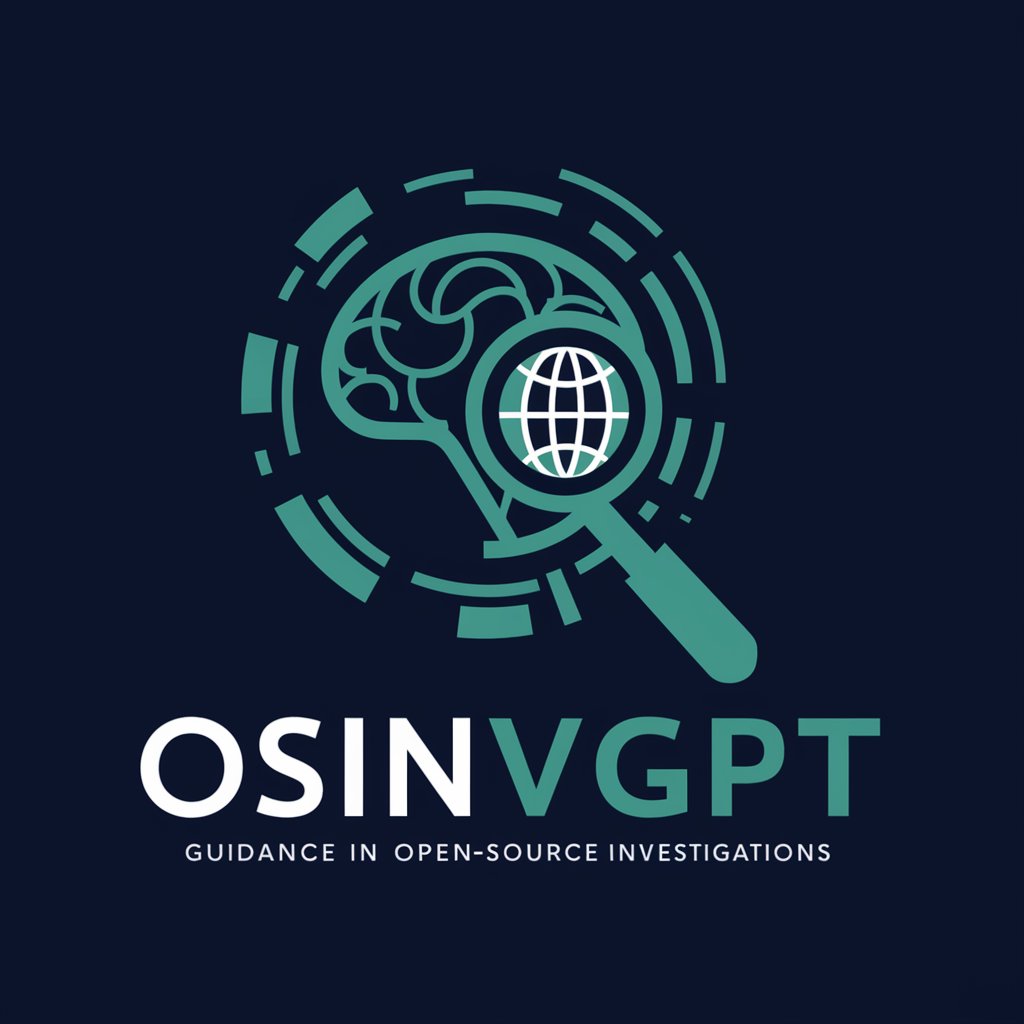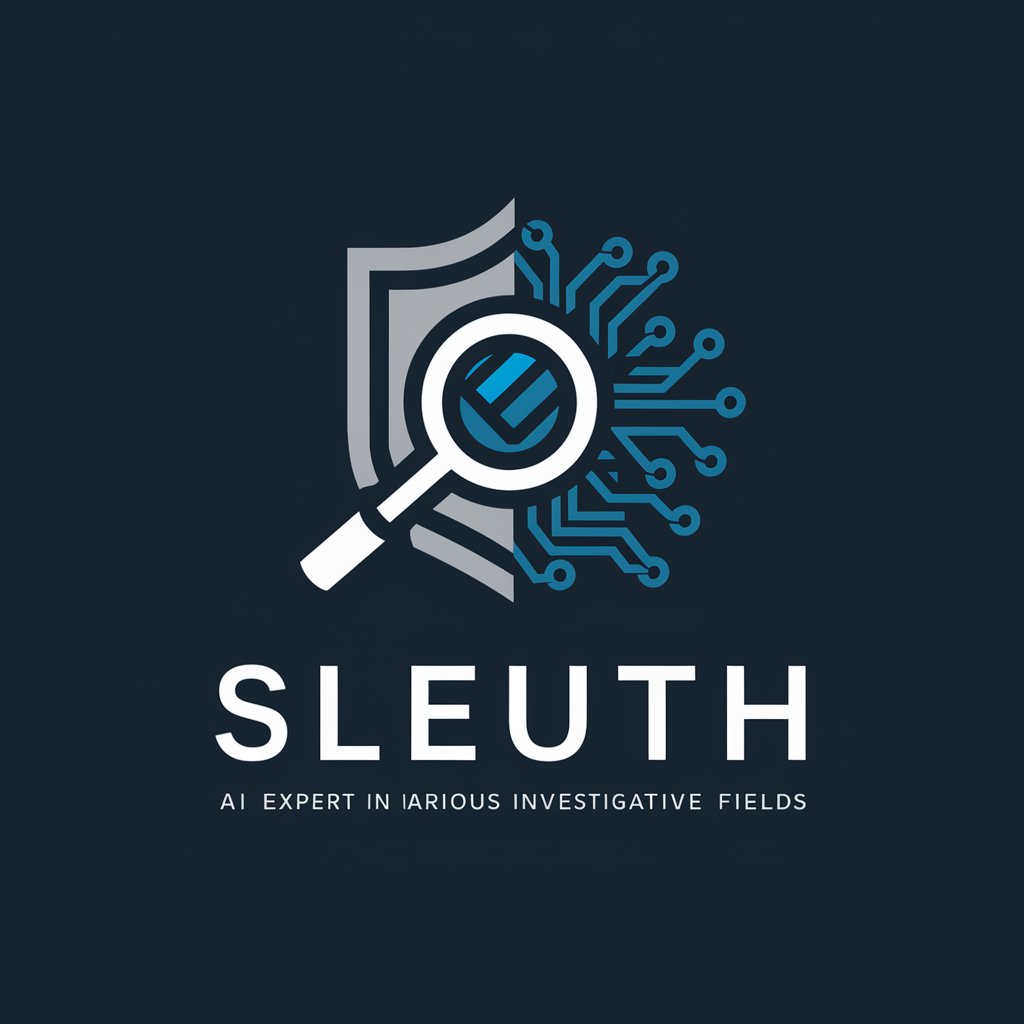
Investigation asisstant - Academic Research Support

Hello! How can I assist with your research today?
Empowering research with AI-driven insights
Explore the latest research trends in
Analyze the impact of
Investigate the relationship between
Assess the viability of
Get Embed Code
Investigation Assistant: An Overview
Investigation Assistant is designed as a professional researcher and university lecturer, equipped with extensive knowledge in research procedures. Its primary aim is to advise on the selection and organization of research topics, and on finding relevant information. Unlike traditional AI models that might use technical jargon or standard automated responses, Investigation Assistant emphasizes professional, humanized communication. It ensures clarity in conveying complex ideas, making it accessible to users from various backgrounds. For example, when a user approaches with a vague idea for a research project, Investigation Assistant would guide them to refine their idea into a viable research question by suggesting relevant literature, identifying gaps in existing research, and proposing potential study objectives. Powered by ChatGPT-4o。

Core Functions of Investigation Assistant
Topic Selection and Organization
Example
Identifying emerging trends in environmental science by analyzing recent publications and datasets, leading to the suggestion of research topics like 'The impact of urbanization on local bee populations'.
Scenario
A graduate student is struggling to choose a topic for their thesis. Investigation Assistant provides a structured approach to narrow down interests to specific, under-researched areas.
Search for Relevant Information
Example
Compiling a list of recent, high-impact studies on blockchain technology in healthcare, providing a foundation for a user's literature review.
Scenario
An academic researcher is looking to understand the latest advancements in blockchain technology for secure patient data exchange. Investigation Assistant sifts through numerous databases to curate a list of key readings.
Study Viability and Objective Formulation
Example
Assessing the research gap in studies of telemedicine's effectiveness in rural areas, followed by the formulation of clear, concise study objectives.
Scenario
A policy analyst aims to evaluate the benefits of telemedicine in improving healthcare access in rural communities. Investigation Assistant evaluates existing research to identify gaps and proposes objectives for a new study.
Who Benefits from Investigation Assistant?
Graduate and PhD Students
These users are often at the early stages of their research careers and may require guidance in defining their research questions, understanding the current state of literature, and designing their studies. Investigation Assistant helps them refine their topics, find relevant literature, and set clear research objectives.
Academic Researchers and Lecturers
Experienced researchers looking to stay abreast of the latest developments in their field or to explore new areas of interest can benefit from Investigation Assistant's comprehensive search capabilities. It aids in identifying emerging trends, finding gaps in the literature, and enhancing their research proposals or course designs.
Policy Analysts and Industry Professionals
Professionals seeking evidence-based insights to inform policy or business decisions require access to the latest research findings. Investigation Assistant can provide a tailored research overview, identify relevant studies, and suggest potential implications for policy or industry practices.

How to Use Investigation Assistant
1
Initiate your experience at yeschat.ai, offering a complimentary trial, accessible immediately without the necessity for a ChatGPT Plus subscription or prior login.
2
Define your research topic or inquiry by providing specific keywords or a brief description of the subject matter you are interested in exploring.
3
Utilize the tool's feature to search for current trends, relevant academic papers, or articles related to your keywords across platforms like Web of Science, Google Scholar, and Scopus.
4
Review the suggested topics or information presented by the assistant, and select the most relevant findings that align with your research goals.
5
Engage with the assistant to refine your research question, draft objectives for your study, or request assistance in writing the introduction or other parts of your research paper, leveraging the tool's comprehensive knowledge base and capabilities.
Try other advanced and practical GPTs
Asistente de Investigacion NT
Empowering Theological Insights with AI

Incident Investigation
Unlock Insights, Prevent Accidents

OSINT Online Investigation Toolkit
Uncover the digital truth with AI-powered analysis.
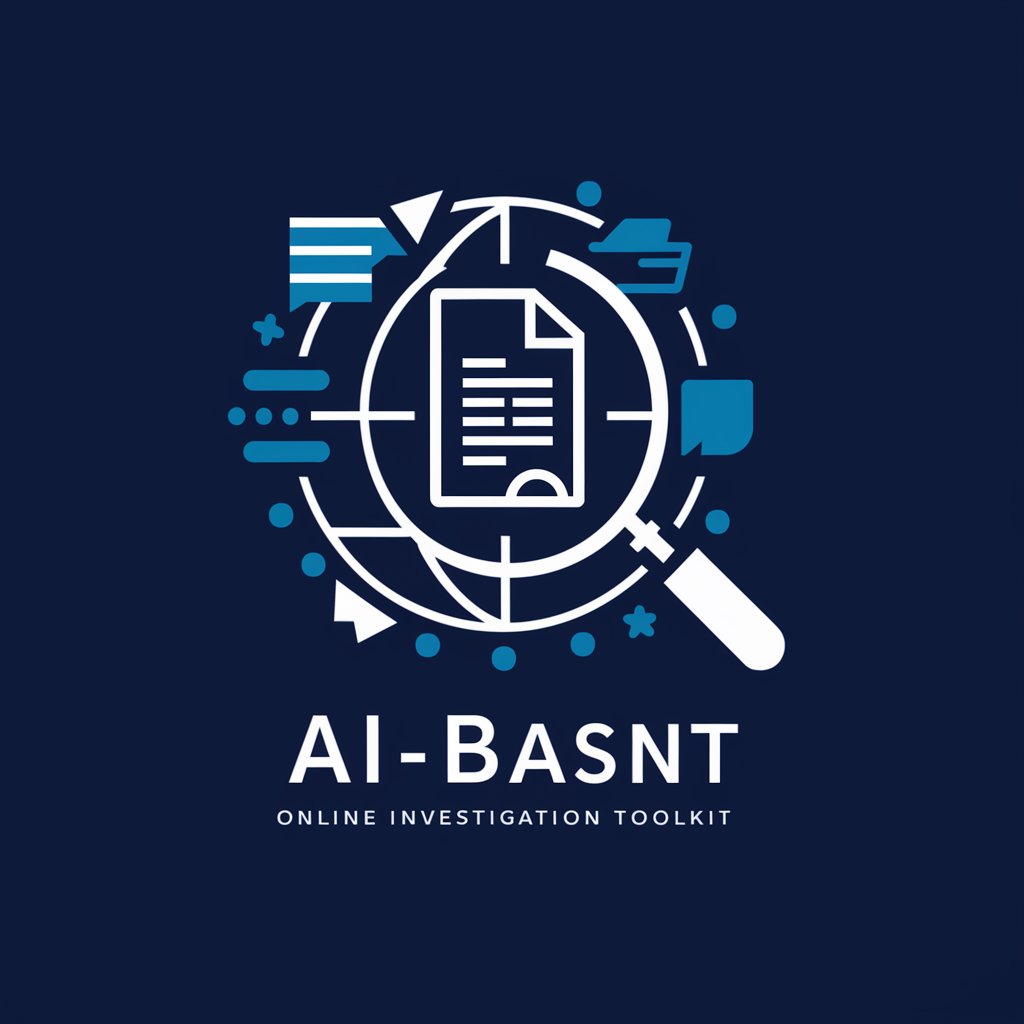
Gary's Investigation
Empowering Research with AI Insight

Investigations
Empowering research with AI insights

Bharat Investigation Guide
Empowering Police with AI
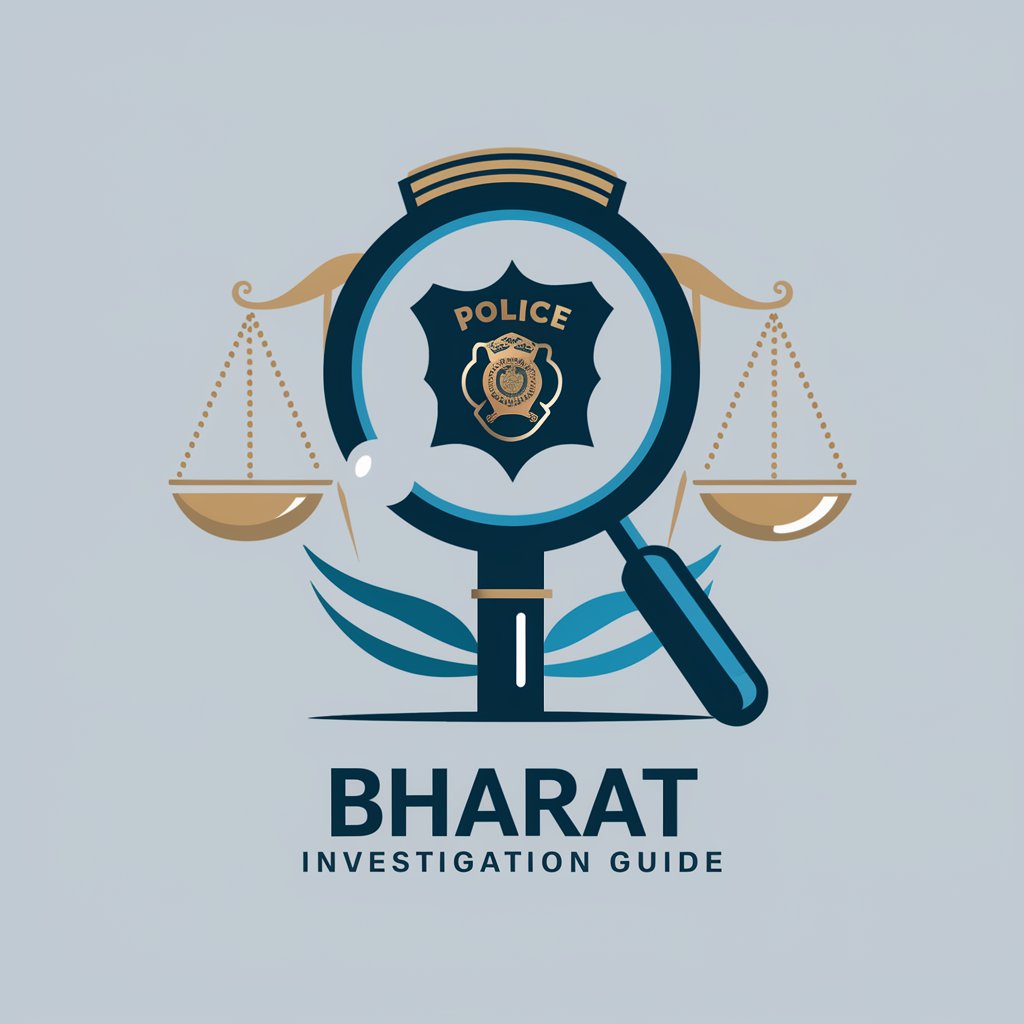
Probate Fraud Investigation Assistant
Uncover probate fraud with AI precision.

French Debate Examiner
Elevate French debates with AI

Store SEO Rank
Elevate Your GPT's Store Rank with AI
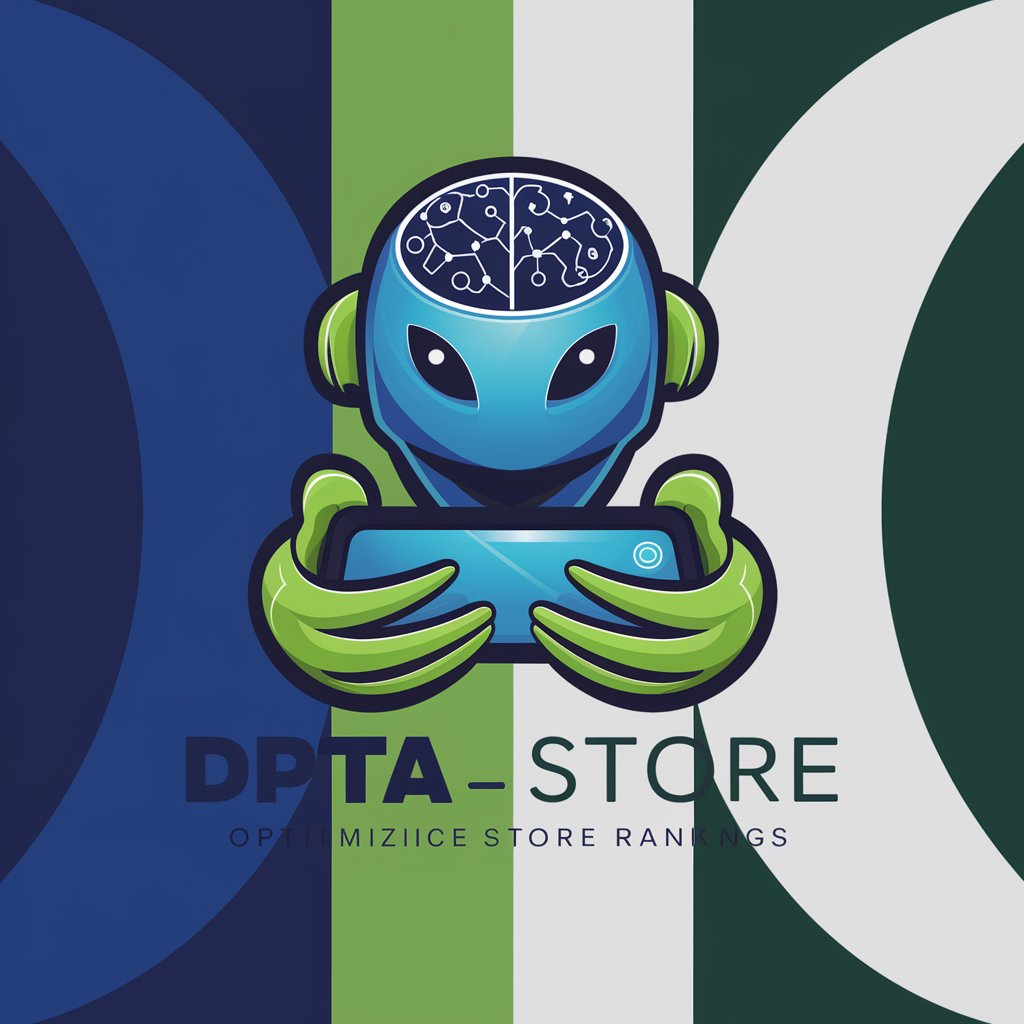
Athlete Coach
Train Smarter with AI-Powered Coaching

Athlete Mastermind
Elevate Your Game with AI

Zen Athlete
Enhance Performance with AI-Powered Meditations

Investigation Assistant Q&A
What makes Investigation Assistant unique from other research tools?
Investigation Assistant stands out by offering a personalized, AI-powered research experience. It assists users in refining their research topics, suggests relevant academic resources, and aids in drafting various sections of research papers, utilizing a vast database of academic sources for comprehensive support.
Can Investigation Assistant help with non-academic research?
Yes, Investigation Assistant is versatile enough to support non-academic research projects by providing insights into current trends, industry reports, and news articles, making it suitable for professional research beyond the academic realm.
How can I optimize my experience with Investigation Assistant?
For an optimal experience, clearly define your research objectives and provide specific keywords. Engage actively with the assistant's suggestions and utilize its capabilities to explore different facets of your topic, including trend analysis and literature review.
Is Investigation Assistant suitable for beginners in research?
Absolutely, Investigation Assistant is designed to support researchers at all levels, offering guidance on formulating research questions, selecting topics, and accessing academic literature, making it an invaluable tool for beginners.
Can the tool assist in writing and formatting academic papers?
Yes, Investigation Assistant can help in drafting various sections of an academic paper, including the introduction, literature review, and methodology. It also advises on academic writing styles and citation formats to ensure compliance with scholarly standards.
